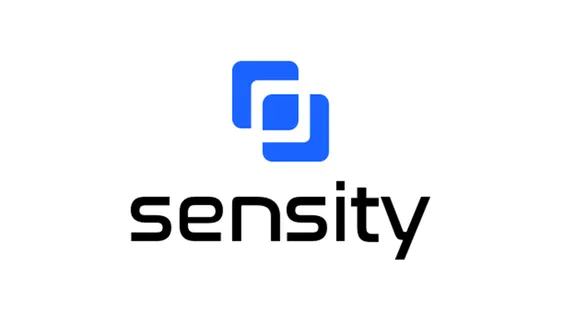
How Databricks is helping build Amsterdam's AI scene
What is Databricks, and how is it innovating?

Databricks was started in 2013 and grew out of Apache Spark, an open-source project from the University of California in Berkeley. Following this, as Leventis puts it, Databricks “quickly became a platform for a collaborative approach on data.” At its core, the company provides an open source cloud-based platform, called the Databricks Data Intelligence Platform, that allows users to build, scale, and manage their data and AI applications.
This approach is more relevant than ever. The artificial intelligence market, valued at roughly $196.63 billion in 2023, is projected to reach $1.81 trillion by 2030. And while many factors contribute to this growth, AI's ability to reduce workload and streamline processes is a major driver.
“Every company is trying to find a way to leverage its data,” Leventis says. Databricks's Data Intelligence Platform enables them to do just that - whether to streamline their business, improve their product, upgrade their customer experience, or any other imaginable use case.
Powering change in the real-world
One example is how Databricks supports companies like AstraZeneca. The healthcare and pharmaceutical giant uses the company's Data Intelligence Platform and machine learning capabilities to discover new drugs faster, cheaper, and more effectively.
Beyond healthcare, Databricks powers major brands such as Adobe, Prada, Heineken, and ABN AMRO, helping them to harness AI and data to ease operations.
Early pioneers for AI integration
Databricks has a strong track record of innovation, pioneering both the data lakehouse and, more recently, the data intelligence platforms.
Traditionally, businesses stored data in one of two ways: data lakes, holding vast amounts of raw information but were difficult to analyse, or data warehouses, where data was cleaned and organised. The data lakehouse bridges this gap, offering the best of both worlds.
With the rise of generative AI, businesses needed a way to work seamlessly with structured and unstructured data. And in 2023, the company acquired MosaicML to make generative AI more accessible, enabling organisations to build, own and secure generative AI models using their own data.
This led to the Data Intelligence Platform, which combines AI-driven analytics, with open-data governance, allowing businesses to maximise value while keeping full control of their data. As a result, the lakehouse architecture has become “the primary architecture that companies use to architect how their data cloud works today.” says Leventis.
In other words, whether a business is in healthcare or manufacturing, or any sector in between, Databricks’ tools are enabling companies to do more with less. And Amsterdam has played a key role in the company’s success.
Databricks and Amsterdam: growing together

“Amsterdam is our largest R&D location in Europe,” says Leventis. The company's expansion into the city began in 2018, driven by a "pocket of talent that had expertise in building distributed data software" Leventis explains.
This included individuals at the CWI Institute and, in particular, Peter Boncz, a Dutch computer scientist who specialises in databases. “Boncz was an early collaborator,” Leventis explains. His students along with experiences professionals from other database companies, formed the nucleus that birthed the Amsterdam office.
Of course, setting up a new location isn’t without its challenges. When it came to launching in the Netherlands, organisations like Invest In Holland and amsterdam inbusiness provided early support, offering guidance, market insight and networking opportunities. “They helped with the early phases,” Leventis says, ensuring Databricks had a soft landing, and could concentrate on business.
From here, the company went from strength-to-strength, growing quickly. “In late 2019, we were only 35 or so people in the office,” Leventis says. Now, Databricks has over 300 people in its Amsterdam location.
Liveability and top tech talent

A company rarely reaches this sort of explosive growth alone. Instead, it works alongside the local ecosystem to thrive, and Databricks is no different. “Amsterdam is a tech hub that people come to because there are multiple good tech jobs in the region, and lots of startups and smaller companies,” Leventis says. This goes from graduates studying databases in Dutch universities, all the way to senior figures from large tech companies in the area, such as Uber or Booking.com.
Geography plays a role too. “Amsterdam is a liveable city,” Leventis says. He points towards how bikeable everything is, the short commute times, the proficiency of English, and ease of integration making it an attractive place for people to visit and, eventually, settle down.
Looking towards the future
“We’re continuing to grow rapidly as a business, continuing to build out the Data Intelligence Platform, and address the needs of customers,” Leventis says.
While Databricks is already a success, the technology world doesn’t stand still. That means that its already popular system needs to evolve, dealing with whatever new issues or trends arrive. Staying stationary isn’t a question.
The continued rise of GenAI and the increasing importance of data, the future is looking bright for Databricks - and the Netherlands is poised to play a vital role in what comes next for the company. As a launchpad for European expansion, the Netherlands offers a strategic link to a thriving AI ecosystem. “It's the perfect place for building out our European presence, and overseeing new market launches,” Leventis says.
Whether it's expanding its offices, building closer ties with the Dutch ecosystem, or spreading into Europe, Amsterdam is a foundation Databricks is building its future from.
Related articles

How Qualcomm makes life better with AI

UiPath is improving lives with the power of AI

QUVA Lab cultivates computer vision

BrainCreators uses AI to help businesses embrace automation

UvA's Natali Helberger discusses the appeal of AI studies in Amsterdam

How the Innovation Centre for AI is creating a world-leading solutions

Sensity deepfake detection

Amsterdam's Expertise Centre uses co-creation to build applied AI

Aigency



